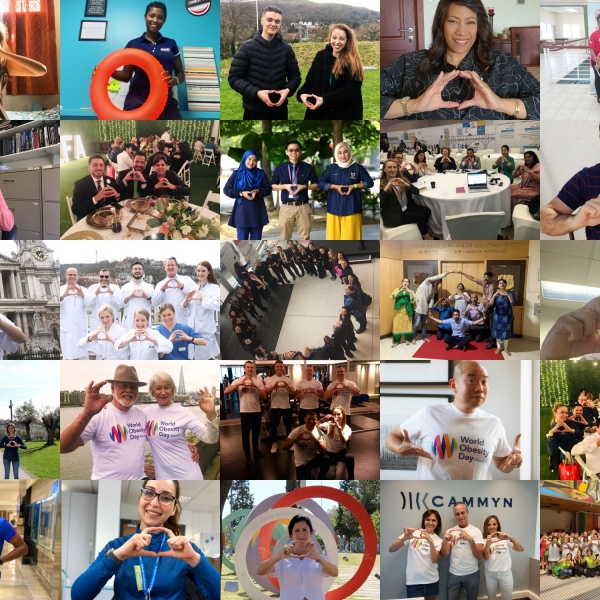Reclaiming the word Obesity? Here we ‘O’!
Reclaiming a word means taking something that has been used in a negative way and turning it into a badge of pride. Even impressionist painting has done this – the first critic to view the paintings with their quick, imprecise strokes and focus on light, sneered that this was nothing more than an “impression” of a picture, not a real painting, and a movement was born.
We were struck by this when we saw the photos sent in by patients and their families and caregivers for World Obesity Day, which took place last Wednesday, March 4. From Nigeria to Nashville, and Kuwait to Kenya, people sent selfies and photos of themselves proudly holding their hands in the O shape. Why O? Well, to be honest, as part of a wider effort to expand and reimagine World Obesity Day, we needed something simple and universal that anyone, anywhere could do to show their support. We were launching a new World Obesity Day with several other groups agreeing to celebrate on one single day, and our campaign on the roots of obesity was focused on decision makers and health providers, as well as people living with obesity. Roots are a great universal object, and we developed a common declaration using ROOTS as an acronym, but still needed something simple to harness the power of our social media age. The O shape seemed to do the trick and we were amazed at how many people responded positively – starting with Nelson Mandela’s lovely granddaughter Zoleka, a cancer survivor and patient activist based in South Africa, as well as actress Dame Helen Mirren.
So much of obesity is still not understood, but what is known is that people with #obesity suffer a terrible level of stigma in many countries. The word obesity has not been used as a noun but an adjective, and the difference between “She has obesity” and “she is obese” is vast, based in part on whether people believe obesity is a disease or some kind of failure of will. Thinking back to our own experiences as doctors and patients, we kept coming back to the point that the patient in the Gulf was relieved to have a name for her condition. The word obesity has been very loaded, and used against people with obesity. This is not right, and this must change. It’s time the word obesity reclaims its rightful place as a noun describing a disease process; a condition that may be with people for their entire lives but does not lay any claim to the quality of that life. Or, for that matter, to the determination and courage many people with obesity exhibit as they seek to remain as healthy and happy as possible, no matter what their weight is.


At the same time, in many parts of the world, awareness of the word obesity is quite new, and patients with obesity in places like the Gulf have expressed relief that they have a name for their condition, one that captures the fact that it is a disease and a risk factor, and most important, not a personal failing. Obesity is a chronic relapsing disease. Once seen as a health concern in high-income countries only, the highest levels of obesity are now in low- and middle-income countries. In many of these countries, undernutrition still prevails, and they are now experiencing the double burden of malnutrition. The Pacific Islands and Middle East experience particularly high prevalence of obesity, affecting up to two thirds of people in some countries, yet commitments to address this have fallen far short. It should also be noted that excess weight is seen as a positive in many countries, especially small island developing states, so stigma plays a different role.
We have learned from other movements that an engaged patient and person living with a disease is central to successful advocacy and better outcomes. People with obesity are some of the most extraordinary champions. At the same time, the word obesity has sometimes been used as a pejorative, and pictures of people with obesity often show their shirts unbuttoned, hands laden with fast food.
On World Obesity Day, let’s reclaim the word obesity, showing it as a complex disease and driver of other diseases, one that calls for a shared and global response.
Article authors
This article has been written by World Obesity President Donna Ryan, and CEO Johanna Ralston.
Contact us